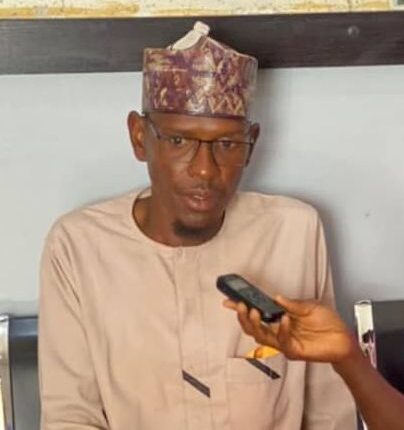The inspiring journey of Akibu Ahmad Bababa: Testament to independence through the White Cane
By Mu’azu Muhammad Sani, Bauchi
As the world marks International White Cane Day, it is an opportunity to raise awareness about the use of the white cane—a symbol of independence for visually impaired individuals. For Akibu Ahmad Bababa, a visually impaired man from Bauchi, the white cane is not just a mobility tool but a key to personal freedom and self-reliance. His story is one of determination, courage, and the pursuit of independence.
Akibu Ahmad Bababa proudly shares how the white cane has transformed his life, enabling him to navigate the world without needing assistance. “As long as I am with my white cane, I have no fear of moving from one place to another,” he says. His account of traveling independently during his National Youth Service Corps (NYSC) in Edo State is a powerful testament to the significance of the white cane.
“I took myself from Bauchi to Edo State by using my white cane, without needing the services of any guide,” Akibu recalls. His journey was not a direct one; he transited through Plateau State and Abuja before reaching Edo. Despite the complexities of the route, he managed it all on his own, a feat he attributes to the confidence and independence his white cane provides.
While the law permits persons with disabilities to be exempt from the three-week NYSC orientation camp, Akibu chose to fully participate. He took part in all activities, including parades, climbing ropes, and even cooking with his platoon. His participation in the kitchen surprised many of his fellow corps members, who initially doubted his ability to contribute. “They asked, ‘What are you going to do?’ I told them, ‘Whatever you want me to do, I can do.’” Akibu helped prepare soup, contributing 60% to the process, which garnered admiration and even went viral on social media.
Akibu fondly remembers his time in Edo State as one of the happiest moments of his life. “I enjoyed living with people from Edo State,” he says, recalling how participating in the camp activities filled him with pride and joy. His determination to prove his capabilities in the face of doubt and challenges reflects the resilience that many visually impaired individuals embody.

The white cane, Akibu explains, is not merely a stick but a tool with specific techniques attached to its use. “There are techniques for using the white cane. For instance, if I’m standing at the shoulder of a road with my cane pointing forward, it indicates that I’m visually impaired and that I want to cross the road,” he explains. In developed countries, drivers recognize this signal and stop to allow visually impaired individuals to cross.
In Nigeria, Akibu advocates for more awareness about the white cane and the needs of the visually impaired. He emphasizes the importance of auditory signals, as sound plays a crucial role in how visually impaired people navigate their surroundings. Loud noises can distract them, and Akibu calls for public spaces and vehicles to consider reducing the volume of public address systems and horns to make movement easier for those who rely on their hearing.
For Akibu, International White Cane Day is not just a day of celebration but a call to action. He urges society to recognize the independence that the white cane offers and to respect the autonomy of visually impaired individuals. His story serves as a powerful reminder that with the right tools and support, people with disabilities can live independently, participate fully in society, and achieve their dreams.
As the world celebrates White Cane Day, Akibu Ahmad Bababa’s journey stands as an inspiring example of self-reliance and the unbreakable spirit of those who refuse to let their impairments define their limitations.



Comments are closed, but trackbacks and pingbacks are open.